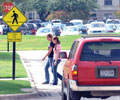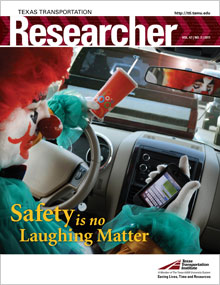
Vehicles are more protective than ever before. The roadway environment is far more forgiving. Traffic laws have evolved and become more effective over time.
By almost any measure, roadway safety has advanced remarkably in a relatively short time, but engineering and enforcement will take us only part of the way. To move forward, meaningful safety improvements will rely heavily upon change — a fundamental change in how we think about driving. Imagine for just a moment what that might look like: a world in which drivers value civility over convenience, one in which driving and safe driving are synonymous and universally valued.
For far too long, our society has adopted a “do as I say, not as I do” attitude behind the wheel. Altering such entrenched beliefs will be neither swift nor simple, but it is essential and achievable. The Toward Zero Deaths initiative, led by the American Association of State Highway and Transportation Officials, and related safety culture work led by the AAA Foundation for Traffic Safety are tangible examples that we are taking steps in the right direction — steps toward a true safety culture.
We took a very big step in May when I was honored to help launch the United Nations Decade of Action for Road Safety 2011–2020, which took place in 110 countries. This was the first time that traffic safety has been recognized on the scale of other killers such as TB, malaria and HIV/AIDS. In fact, in 20 years, more people will die per year on the world’s roads than will die of HIV/AIDS.
Led by the World Health Organization and the FIA Foundation, the Decade of Action aims to reduce road deaths and injuries globally. The key pillars of the Decade of Action address all aspects of road safety, including infrastructure, safety management capacity, vehicles and post-crash care. In addition, one pillar focuses on enhancing road-user behavior, and our success will depend largely on a change in traffic safety culture — the collective values and beliefs that influence our behavior.
I think it’s a fitting coincidence that as we begin our Decade of Action, the Texas Transportation Institute (TTI) is completing an impressive decade of its own. In 2001, the Texas Legislature created the Center for Transportation Safety at TTI, with a charge to “conduct programs of research, education and technology transfer to support the state’s role in improving the safety of the roadways in this state.”
In the 10 years since, TTI has done just that, building upon its remarkable record in the engineering aspects of safety and bringing a new focus and understanding to the policy and behavioral aspects of the field.
The knowledge gained through such research is essential to any further improvements in roadway safety. That’s why I believe that TTI is uniquely positioned to support the advancement of a traffic safety culture in our nation and worldwide, and why I am so delighted to count the agency as a partner in the United Nations Decade of Action for Road Safety.





